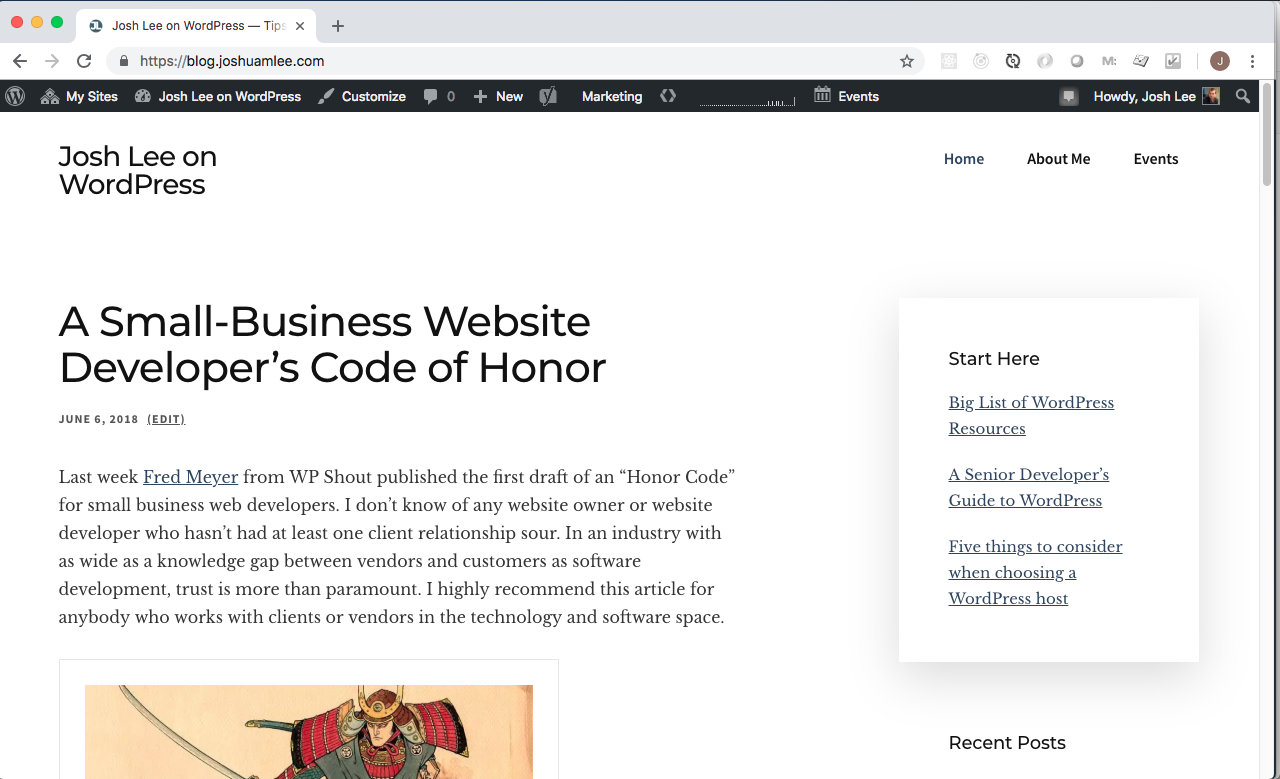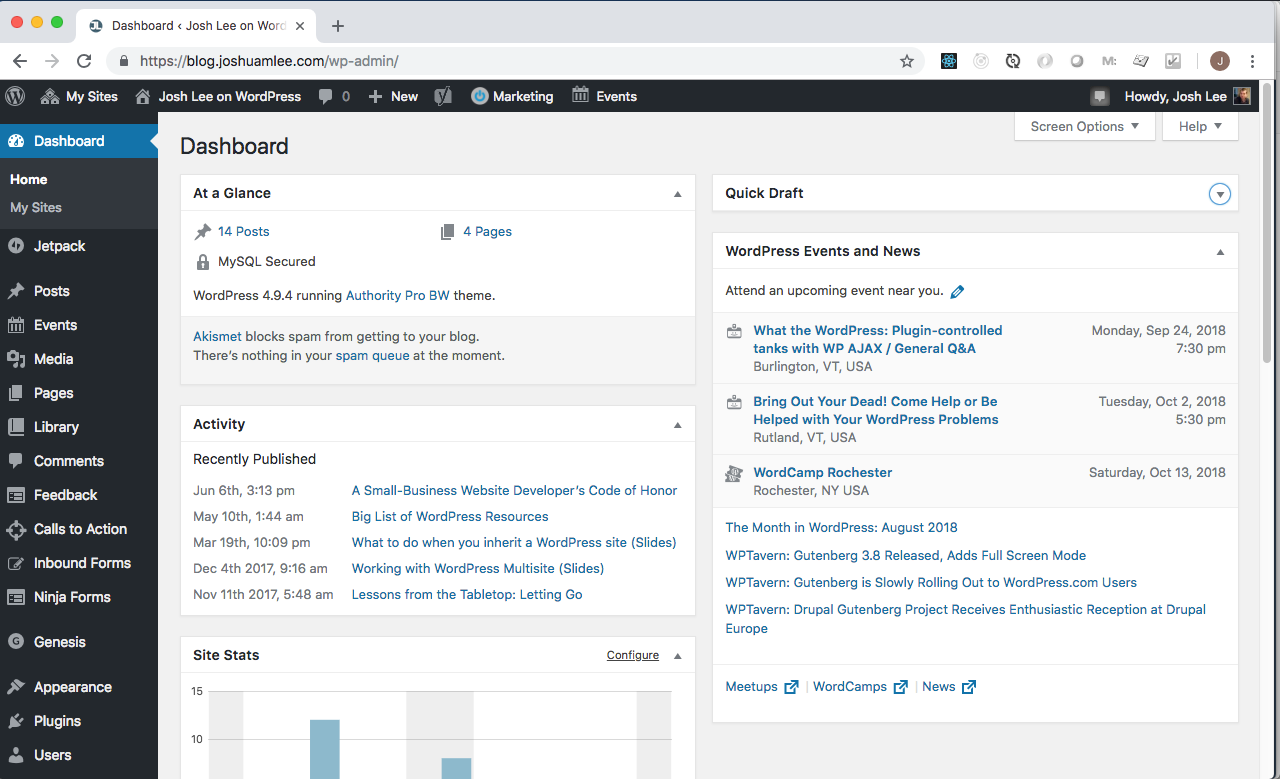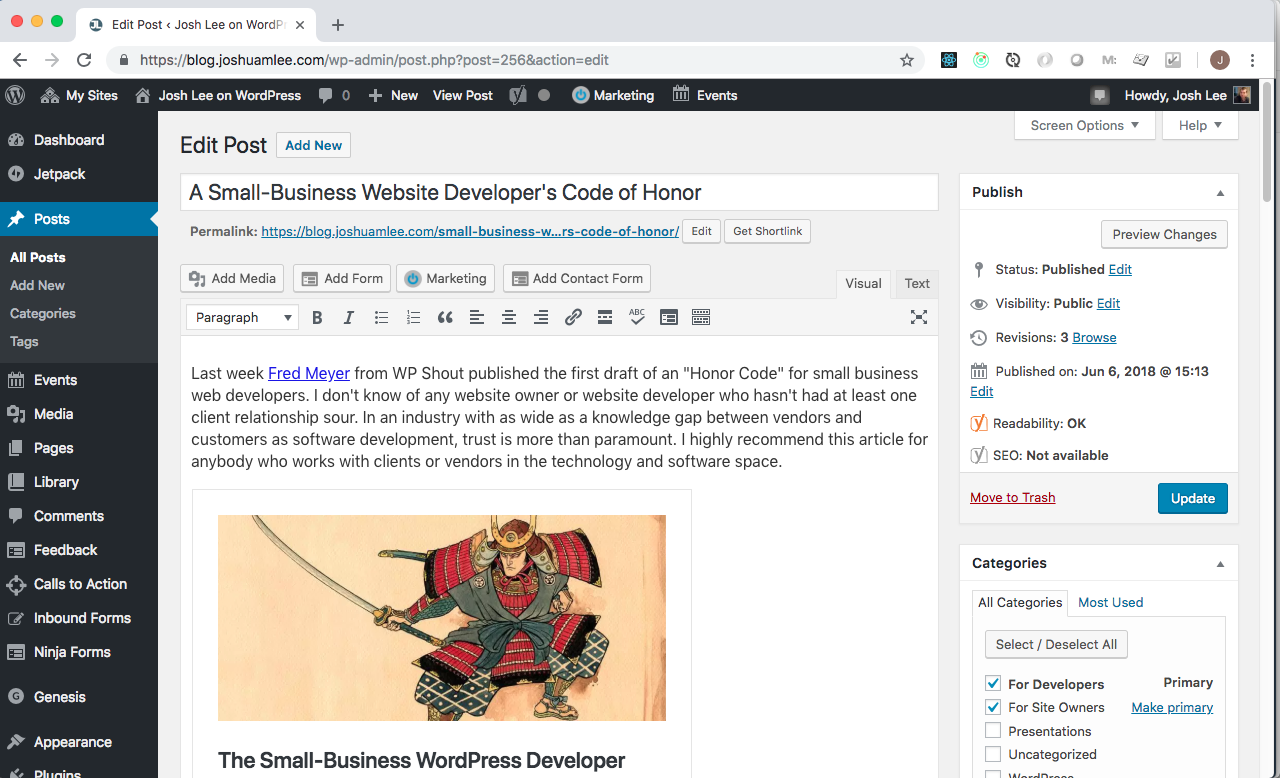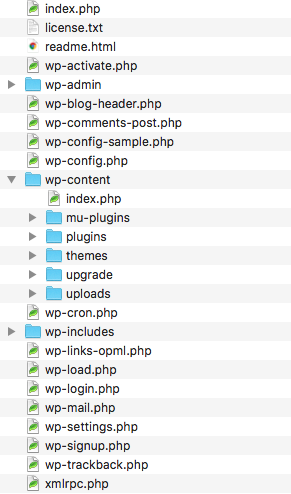A Developer's Guide to WordPress
Josh Lee
- Developer since ~2006
- WordPress developer since ~2010
- Have built scores of WordPress websites of all sizes
- Organizer for the Burlington WordPress Meetup
Find Me
WordPress powers 20% of the internet
Accessibility & Extensibility
Core values
A typical Wordpress site


The Admin



Posts & Pages
built-in Post-Types:
- Post
- Page
- Attachment
- Revision
- Navigation Menu
- Custom CSS
- Changesets
- User Data Request
Custom Post types let you make your own, e.g.:
- Portfolio Item
- Recipe
- Book
/**
* Register a custom post type called "book".
*
* @see get_post_type_labels() for label keys.
*/
function register_my_book_type() {
$labels = array(
'name' => 'Books'
'singular_name' => 'Book'
'menu_name' => 'Books'
...
);
$args = array(
'labels' => $labels,
'public' => true,
'publicly_queryable' => true,
'show_ui' => true,
'show_in_menu' => true,
'query_var' => true,
'rewrite' => array( 'slug' => 'book' ),
'capability_type' => 'post',
'has_archive' => true,
'hierarchical' => false,
'menu_position' => null,
'supports' => array( 'title', 'editor', ... ),
);
register_post_type( 'book', $args );
}
add_action( 'init', 'register_my_book_type' );Categories & tags
Categories & tags are examples of taxonomies
- You can make your own taxonomies
- Taxonomies can be hierarchical (categories) or not (tags)
- Any taxonomy can be associated with any post type
- Specific items within a taxonomy are called terms
Sidebars and widgets
Sidebars are just buckets of widgets
The Wordpress filesystem


Plugins vs. Themes
Themes
Themes must contain an index.php and a style.css
Generally they should be used to provide style and not functionality, but any PHP and hooks are available for developers to use.
Plugins
Plugins have access to the same action hooks as themes, and typically contain functionality changes which might include default styles.
Plugins can also run code upon activation/deactivation
Wait, Just an index.php?

Example Route
- Request: /books/my-book
- Single Custom Post Request:
- single-book-my-book.php
- single-book.php
- single.php
- singular.php
- index.php
If a more specific template does not exist, WordPress will fallback
"The Loop"
<?php
if ( have_posts() ) {
while ( have_posts() ) {
the_post();
//
// Post Content here
//
} // end while
} // end if
?>the_title
the_permalink
the_content
get_header
get_footer
get_sidebar
wp_title
single_post_title
Custom Fields
Custom fields
- Custom fields allow you to let users attach metadata to posts of any type.
- You can create your own interface or...
- Many plugins exist for easily creating custom fields:

Data
Database Tables
- posts
- postmeta
- users
- usermeta
- comments
- commentmeta
- terms
- termmeta
- term_relationships
- term_taxonomy
- options
Posts
One table to rule them all
In WordPress, Everything is a Post*
* almost
Fetching Post data
- "The Loop"
- get_posts()
- WP_Query class
So what about metadata?
Post Meta
Key-value pairs containing data for posts. Can be managed by plugins or sometimes directly by administrators.
User Meta
The same, but for users instead of posts.
Caution:
Either might contain serialized data
Hooks & Filters: MAXIMUM Customization
You can attach your own functions to action hooks
WordPress will run your code at the appropriate time
(e.g. upon initialization of the plugin)
Filters are like actions
But the callback takes and returns an argument
Debugging
Debugging tools
CAUTION
Serialized data
Absolute URLS
The Future
LEARN Javascript DEEPLY
- Matt Mullenweg
Project Gutenberg
Find me online
A Developer's Guide to WordPress (2018)
By Josh Lee
A Developer's Guide to WordPress (2018)
- 1,328



